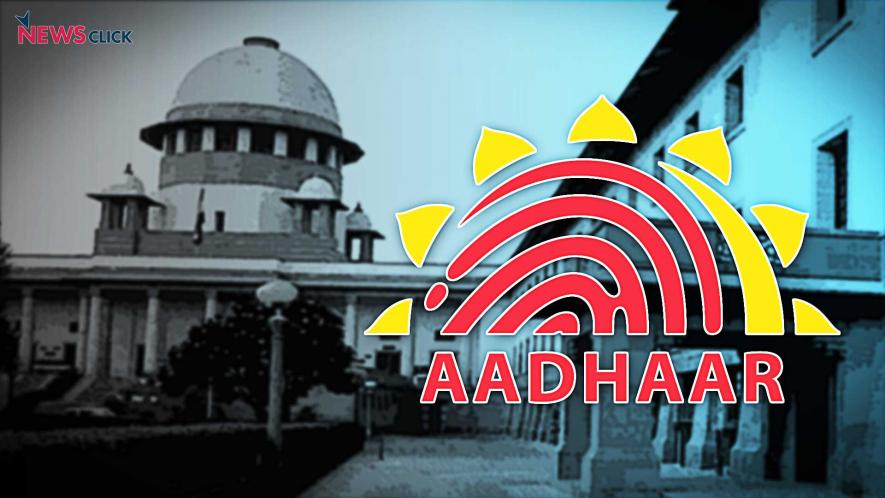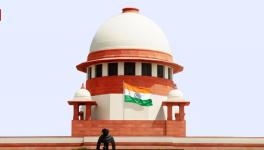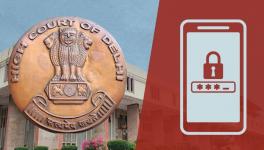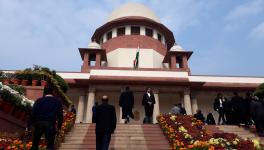Senior Counsel Gopal Subramanium Resumes his Arguments in the Aadhaar Hearings

Newsclick Image by Nitesh Kumar
The Aadhaar proceedings continued on February 20, marking the 11th day of hearing the petitioners’ arguments. Senior Advocate Gopal Subramanium began his arguments with the Judgement in the Right to Privacy case along with the Judgements of NALSA vs Union of India and Subramanian Swamy vs Union of India. In the NALSA case, the rights of transgenders were read into Articles 15 and 21 – the prohibition of discrimination on grounds of religion, race, caste, sex or place of birth and the protection of life and personal liberty. In the Subramanian Swamy case, the right to life includes the right to reputation. The Senior Counsel concluded his reference to these cases by stating that the scope of Article 21 includes dignity, which Aadhaar violates.
It was further argued that Aadhaar fails with respect to the theory of potential harm. The theory of potential harm in law refers to whether the costs outweigh the benefits. In this regard, it was submitted that by giving precedence to the digital person, the physical person ceases to be what defines who the person is. He submitted that Aadhaar fails the test of ‘reasonableness’ citing several case laws. ‘Reasonableness’ here refers to whether the legislation in question is ‘just and proper’.
In reference to Justice Chandrachud’s observation that ‘status is a prerequisite for social mobilisation’ in the previous hearing, the Senior Counsel advanced that Aadhaar would impede social mobilisation as it results in the civil death of the person as well as conferring the power to result in the constitutional death of the person. He further stated that the rights and entitlements conferred by the Constitution cannot be left to the mercy of an algorithm that the UIDAI cannot control. Stating the Judgment in the right to privacy case where it referred to District Registrar & Collector, Hyderabad vs Canara Bank, he brought the Court’s notice to the part in the Judgement wherein it mentioned that if there was no right to privacy there would be no need to shield bank account numbers nor personal phone numbers.
The Senior Counsel also cited the observation of Justice Chandrachud in the right to privacy case where he had mentioned that privacy is a part of the right of an individual to exercise control over their personality. This right originates in the idea that there are certain rights that are inherent to human existence. These natural rights as such are inalienable from human personality. He further stated that Aadhaar perpetuates exclusion which is unconstitutional. This he supported by stating that the Indian Constitution ‘harmonises’ the concept of exclusionary reasons propounded by Joseph Raz, as well as that individuals can have rights against the state which precede an explicit legislation as propounded by Ronald Dworkin.
Relying on two decisions of the Federal Constitutional Court of Germany, he advanced that there must be a space which an individual can enjoy in solitude and that the right of informational self-determination has its roots in constitutional principles of personhood and self-determination.
Get the latest reports & analysis with people's perspective on Protests, movements & deep analytical videos, discussions of the current affairs in your Telegram app. Subscribe to NewsClick's Telegram channel & get Real-Time updates on stories, as they get published on our website.
























